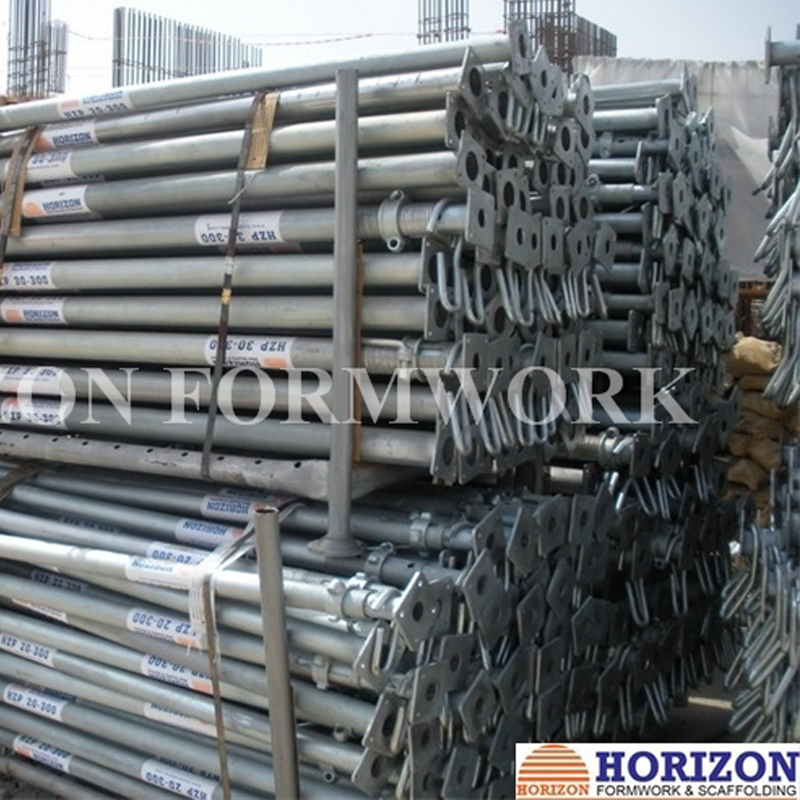Nov . 09, 2024 14:10 Back to list
Steel Support Structures for Temporary Construction Solutions and Frameworks
The Importance of Steel Falsework in Modern Construction
Steel falsework is a critical component in modern construction, providing the necessary temporary support for structures during the building process. This system plays a vital role in ensuring safety, efficiency, and accuracy in the construction of various projects, from bridges to high-rise buildings. As construction techniques evolve, the demand for sturdy, reliable falsework systems has increased, making steel falsework factories a vital part of the construction supply chain.
Understanding Steel Falsework
Falsework refers to temporary structures used to support permanent structures until they can support themselves. Steel falsework, in particular, utilizes steel materials for its framework, offering significant advantages over traditional timber falsework. Steel is known for its strength, durability, and resistance to environmental factors, making it an ideal choice for temporary support systems.
The design of steel falsework is versatile, allowing it to be tailored for different construction needs. Engineers can create customized falsework systems that meet specific project requirements, such as load-bearing capacity and formation, making steel falsework an essential tool in the construction industry.
Advantages of Steel Falsework
1. Strength and Stability One of the primary advantages of steel falsework is its strength. Steel structures are engineered to handle substantial loads, ensuring that the framework remains stable during the construction process. This stability reduces the risk of accidents and failures, safeguarding workers and the public.
2. Durability Steel falsework is resistant to rot, pests, and harsh weather conditions, which are common challenges faced by timber frameworks. This durability ensures that the falsework remains effective throughout the life of the construction project, reducing the need for frequent repairs or replacements.
3. Cost-Effectiveness Although the initial investment in steel falsework may be higher than timber options, the long-term savings can be significant. Steel's durability translates to lower maintenance costs, and its reusability for multiple projects can lead to overall cost efficiencies in the construction process.
4. Precision and Efficiency Steel falsework systems can be prefabricated to precise specifications, allowing for quicker assembly on-site. This efficiency can significantly reduce construction times, enabling projects to meet deadlines more easily. Additionally, the predictability of steel reduces the chances of errors during installation, ensuring that the construction process is smooth and efficient.
steel falsework factory

Applications of Steel Falsework
The applications of steel falsework are extensive, encompassing various construction projects such as
- Bridges Steel falsework provides the necessary support for bridge components during construction, allowing skilled workers to place heavy elements accurately and safely. The strength of steel ensures that even large spans can be accommodated without compromising structural integrity.
- High-Rise Buildings In the construction of skyscrapers, steel falsework is essential for constructing floors and ceilings, particularly during the vertical ascent of the building. It allows for safe and efficient stacking of materials and installation of utilities.
- Infrastructure Projects Roadways, tunnels, and dams often require temporary support during construction. Steel falsework is ideal for these large-scale projects, offering the strength needed for substantial loads and the durability required for prolonged use.
The Role of Steel Falsework Factories
Steel falsework factories play an essential role in the construction industry by manufacturing these temporary support systems. These factories focus on innovative design and manufacturing processes to produce high-quality falsework solutions tailored to specific project needs.
Modern factories utilize cutting-edge technology and skilled labor to ensure that their steel products meet stringent safety and quality standards. Furthermore, many factories are adopting sustainable practices, such as recycling scrap metal and implementing energy-efficient manufacturing processes, to reduce their environmental impact.
Conclusion
In conclusion, steel falsework is an indispensable element in modern construction. Its strength, durability, and versatility offer significant advantages over traditional materials, making it a preferred choice for temporary support in various projects. As the demand for innovative and efficient construction solutions continues to grow, steel falsework factories will remain vital in supplying the industry with the necessary materials to build safe and lasting structures. Investing in quality steel falsework not only enhances safety but also contributes to the overall efficiency and success of construction projects around the world.
-
Premium Formwork Wing Nuts & Tie Rods | Factory Supplier
NewsAug.29,2025
-
Expert Ringlock Scaffolding: Durable, Safe, Efficient Solutions
NewsAug.28,2025
-
Ringlock Scaffolding: Strong, Safe & Efficient Solutions
NewsAug.27,2025
-
OEM Column Formwork: Circular, Curved & Inclined Solutions
NewsAug.26,2025
-
Premium Scaffolding Jacks: Stable, Adjustable & Durable
NewsAug.25,2025
-
OEM Wall Formwork & Shuttering: Flexible & Curved Solutions
NewsAug.24,2025